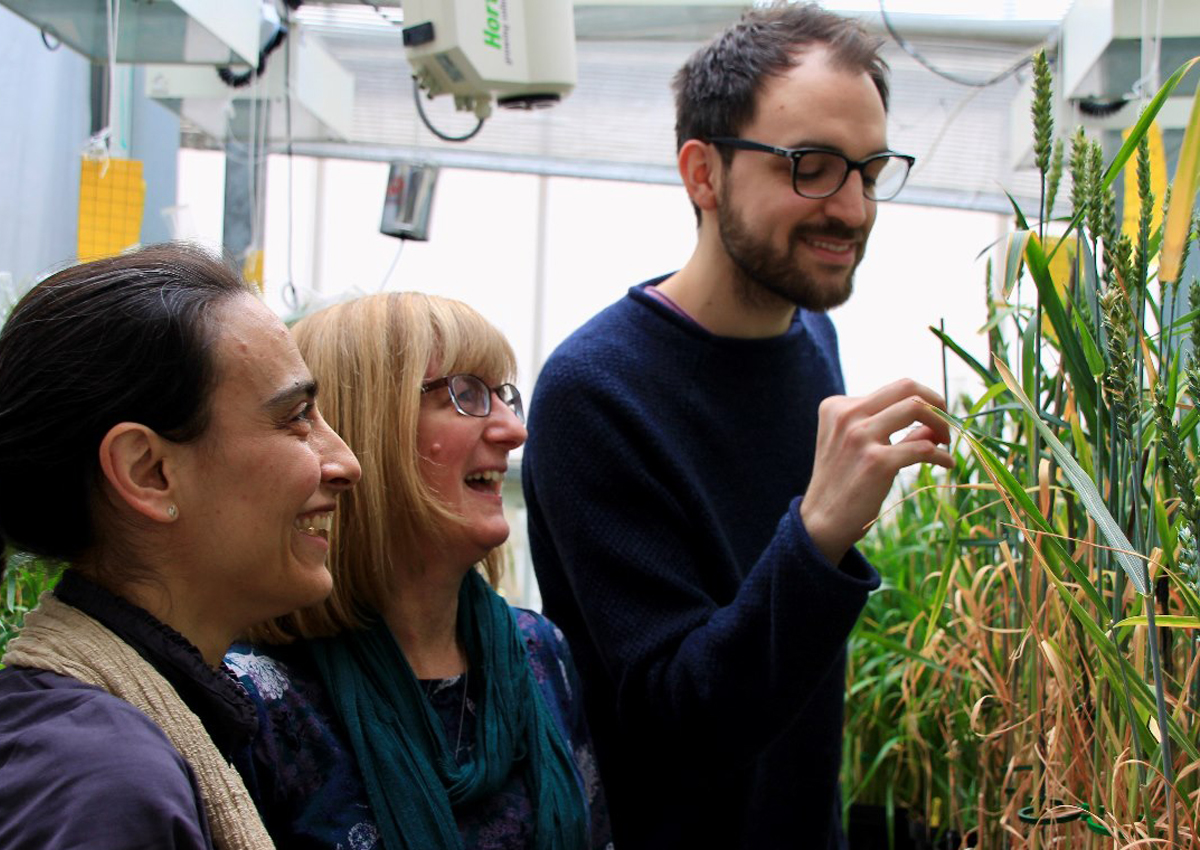
Scientists a Step Closer to Heat-tolerant Wheat
May 6, 2020| |
Plants' Rubisco activase (Rca) act like smart thermostats that tell air conditioners to switch on when the sun bears down during summer days. Rca tells the plant's energy-producing enzyme (Rubisco) to kick on when the sun is shining and signals it to stop when the leaf is deprived of light to conserve energy. A team from Lancaster University has discovered that swapping just one molecular building block out of 380 that makes up the Rca in wheat enables it to activate Rubisco faster in hotter temperatures, suggesting an opportunity to help protect crops from rising temperatures.
Dr. Elizabete Carmo-Silva, senior lecturer at the Lancaster Environment Centre who oversaw this work for the project Realizing Increased Photosynthetic Efficiency (RIPE) said they took a wheat Rca (2β) that was already pretty good at activating Rubisco in lower temperatures and swapped out just one of its amino acids with one found in another wheat Rca (1β) that works pretty well in higher temperatures but is not too good at activating Rubisco — and the result is a new form of 2β Rca that is "the best of both worlds."
Naturally occurring wheat Rca 1β has an isoleucine amino acid, works up to 39 degrees Celcius, but isn't great at activating Rubisco. The naturally occurring 2β, however, has a methionine amino acid, works up to about 30 degrees Celcius, and is good at activating Rubisco. The team created a new version of 2β with an isoleucine amino acid that works up to 35 degrees Celcius and is quite good at activating Rubisco. Dr. Carmo-Silva said, "The cool thing here is that one amino acid swap can make Rca active at higher temperatures without really affecting its efficiency to activate Rubisco, which could help crops kickstart photosynthesis under temperature stress to churn out higher yields."
For more details, read the article on the Lancaster University website.
| |
You might also like:
- Australian Scientists Develop New Method to Produce Drought-Resilient Wheat Quickly, Cheaply, and Accurately
- Rain-resistant Wheat Developed Using Genome Editing
- Chinese Scientists' Genome-Edited Wheat to Help Control Weeds
Biotech Updates is a weekly newsletter of ISAAA, a not-for-profit organization. It is distributed for free to over 22,000 subscribers worldwide to inform them about the key developments in biosciences, especially in biotechnology. Your support will help us in our mission to feed the world with knowledge. You can help by donating as little as $10.
-
See more articles:
-
News from Around the World
- U.S. EPA Grants Approval to Conduct GE Mosquito Field Trials
- Experts Discover Rice Proteins Vital for Pollination
- Scientists a Step Closer to Heat-tolerant Wheat
-
Research Highlights
- Next-generation Sequencing of Poplar Lines Confirms Vector-free Transformation
- CRT1a Knockout Reduces Plant Susceptibility to Fungal Attack
-
Plant
- CRISPR-Cas9 Technology Reveals Function of OsRhoGDI2
-
Health
- Researchers Discover Antibody that Blocks SARS-CoV-2 Infection in Cells
- The Role of Plant Biotechnology Against SARS-CoV-2
- Canadian Researchers Use Algae to Produce COVID-19 Test Kits
- Food Security Expert Says COVID-19 Pandemic Calls for Reassessment of Food Systems
-
Read the latest: - Biotech Updates (February 11, 2026)
- Gene Editing Supplement (January 28, 2026)
- Gene Drive Supplement (February 22, 2023)
-
Subscribe to BU: - Share
- Tweet

